MAGNESIUM CHLORIDE (MgCl2)
ABOUT:
The reaction between hydrochloric acid and magnesium hydroxide or magnesium oxide is exothermic and can be represented by the following chemical equation:
Mg(OH)2 + 2HCl → MgCl2 + 2H2O
The reaction is typically carried out in a reactor vessel equipped with an agitator and temperature control. Magnesium hydroxide or magnesium oxide is slowly added to the hydrochloric acid while stirring and maintaining a controlled temperature. The resulting solution of magnesium chloride in water is then purified, concentrated, and dried to obtain the desired form of solid magnesium chloride.
PHYSICAL PROPERTIES:
Melting point: 714°C (1,317°F)
Boiling point: 1,412°C (2,574°F)
Density: 2.32 g/cm³
Appearance: white in color, although impurities can cause it to appear brown or gray.
Odor: Magnesium chloride is odorless.
Molecular weight: 95.21 g/mol
Taste: Magnesium chloride has a slightly bitter and salty taste.
pH: Magnesium chloride has a slightly acidic pH, with a pH of around 6
CHEMICAL PROPERTIES:
- Magnesium chloride is highly soluble in water and ethanol, with the solubility in water increasing as the temperature rises.
- Magnesium chloride has a crystal structure that is cubic, with each magnesium ion surrounded by six chloride ions and each chloride ion surrounded by six magnesium ions.
- Magnesium chloride is hygroscopic, meaning that it readily absorbs moisture from the air.
- Magnesium chloride is a neutral salt, meaning it does not have an acidic or basic effect on solutions.
- Magnesium chloride is not highly reactive, but it can react with strong acids and bases to form different magnesium salts.
- Magnesium chloride is not flammable, but it can be used as a fire retardant.
APPLICATIONS:
DE-ICING AND DUST CONTROL:
- Magnesium chloride is often used to melt snow and ice. It is effective at low temperatures, making it useful in cold climates. It can also reduce the amount of corrosion caused by traditional salt-based de-icing agents.
- Magnesium chloride can be used to suppress dust on roads, construction sites, and other areas where dust can be a problem. It works by attracting moisture from the air and binding to dust particles, making them heavier and less likely to become airborne.
MEDICAL AND PHARMACEUTICAL:
- Magnesium chloride is sometimes used as an antacid to help relieve heartburn and indigestion. It works by neutralizing stomach acid and reducing inflammation in the digestive tract.
- Magnesium is a mineral that is essential for many bodily functions. Magnesium chloride is frequently used as a dietary supplement to provide the body with the magnesium it requires for proper function.
- Magnesium chloride can be applied topically to relieve muscle and joint pain and inflammation. It is thought to function by increasing blood flow and relaxing muscles.
WATER TREATMENT:
- Magnesium chloride is used in water treatment plants to soften water by removing excess calcium and other minerals. It can also be used to treat wastewater by removing phosphates and other pollutants.
METAL EXTRACTION:
- Magnesium chloride is used in the production of magnesium metal and in the extraction of other metals such as titanium.
CONSTRUCTION INDUSTRY:
- Magnesium chloride is used as an additive in concrete to improve its strength and durability.
- Magnesium chloride is used as a fireproofing agent in construction materials like drywall and insulation.
- Magnesium chloride is used to stabilize soil and prevent erosion on construction sites.
TEXTILE INDUSTRY:
- Magnesium chloride is used in textile dyeing and printing processes as a fixative and mordant. It improves the colorfastness and intensity of the colours, as well as the overall dye uptake by the fabric.
- Magnesium chloride is used in the mercerization process, which is used to strengthen, lustre, and absorb cotton fibres.
- Magnesium chloride is used in textile finishing processes to impart a range of functional properties to fabrics, including water repellency, flame retardancy, and antistatic properties.
AGRICULTURE:
- It has been used to reduce soil acidity, improve soil structure, and provide essential nutrients to crops.
- Magnesium chloride is also used as a soil conditioner to increase water-holding capacity, reduce erosion, and improve drainage.
- Magnesium chloride has also been used to control weeds and pests, as well as to increase crop resistance to drought, cold, and diseases.
FOOD AND BEVERAGE:
- It is used as a preservative to help extend shelf life, to help keep food and beverages fresh, and to control acidity and flavor. It can also be used to add flavor and texture to foods.
- It can also be used as a stabilizer or thickener, or as an anti-caking agent.
SAFETY MEASURES:
- When handling magnesium chloride, it is recommended to wear protective gear such as gloves, safety glasses, and a face mask to avoid any contact with your skin or eyes.
- Magnesium chloride should be stored in a cool, dry place, away from direct sunlight, and should be kept in a well-sealed container to avoid moisture.
- Magnesium chloride can be corrosive, so it is important to handle it with care to avoid any accidental spills or splashes. If a spill occurs, it should be cleaned up immediately using appropriate materials such as a dry cloth or a vacuum cleaner.
- While magnesium chloride is generally safe to use, it should not be ingested in large quantities, as this can lead to digestive issues or other health problems. If ingested accidentally, seek medical attention immediately.
- Always read the instructions and labels carefully before using magnesium chloride to ensure safe and effective use.
PACKAGING:
- Magnesium chloride can be packed in plastic bags or containers that are made from materials such as polyethylene, polypropylene, or PVC. These materials are lightweight and provide a barrier against moisture and air.
- And it comes in 25 or 50kgs packs.

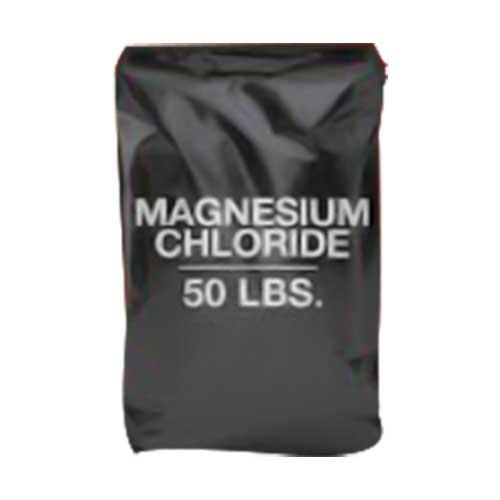
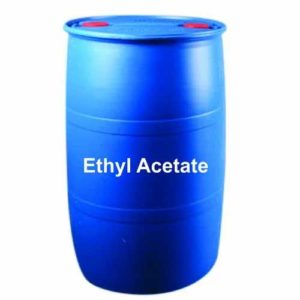
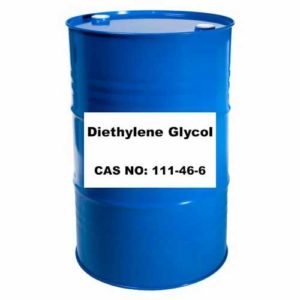
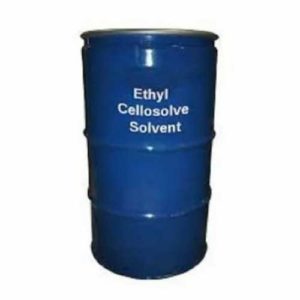
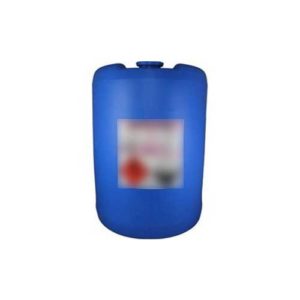

Reviews
There are no reviews yet.